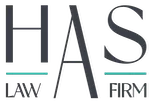- within Employment and HR topic(s)
- within Employment and HR, Technology and Tax topic(s)
The DIFC Courts Practice Direction No. 1 of 2025: Access to Justice in Employment Disputes ("PD 1/2025") issued by the Chief Justice of the DIFC Courts H.E. Justice Wayne Martin effective on 9 October 2025.
Having regard to the increasing number of claims brought before the DIFC Courts, PD 1/2025 was issued to bolster efficiency, access to justice for those with limited means, and to ensure a fair and proportionate legal framework within the freezone. PD 1/2025 applies solely to employment disputes brought before the Court of First Instance ("CFI").
Waiver/Reduction of Court Fees
There is a reduction or waiver in the filing fees for any employment claim based on financial means, complexity and merits of the claim, and the interests of justice.
Parties must put forward an application seeking a reduction or waiver and any subsequent grant of reduction or waiver shall be at the Registrar's discretion.
An instalment payment mechanism may be offered in circumstances where financial hardship is evidenced.
To ensure proportionality and uphold the overriding objective, the Registrar is empowered to impose a maximum fee cap with regard to the filing fee payable.
Costs
In CFI claims, the losing party must pay the legal costs of the other party.
However, following PD 1/2025, in all employment disputes, each party shall bear their own legal costs.
An adverse costs order may be issued by the Court where a party's conduct has been unreasonable, vexatious, a party has acted in bad faith, or in the interest of justice. It is mandatory for such adverse costs order to be proportionate and be accompanied by reasons.
Confidentiality
Unless specifically directed otherwise, all employment proceedings in the CFI will be conducted in private. Confidentiality will only be lifted when necessitated for reasons of public accountability, third-party prejudice, and prevention of abuse of process.
The publication of final judgments on the DIFC Courts website shall be anonymized.
Analysis
PD 1/2025 is a positive movement towards aligning the DIFC Courts' framework in relation to the adjudication of employment disputes with international practices.
The permissibility of a reduction/waiver in filing fees is a welcomed amendment where the majority of employment disputes are accompanied with financial distress related to unlawful termination or unpaid salaries/entitlements. There is, however, a risk of abuse or potential increase in frivolous claims if fees are waived too easily.
Parties now having to bear their own legal costs also brings in a greater sense of predictability to the costs incurred in legal proceedings particularly for employees seeking redressal before the DIFC Courts.
Employment claims often involve sensitive issues such as dismissal, discrimination, harassment, publication of which could surely have an adverse effect on the individual and the company based on the outcome of the proceedings. The anonymisation of final judgments provides a balance between confidentiality and transparency.
Although a welcome change, the practical effect and implementation of PD 1/2025 in relation to employment proceedings, remains to be seen.
The content of this article is intended to provide a general guide to the subject matter. Specialist advice should be sought about your specific circumstances.
[View Source]

